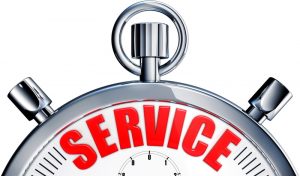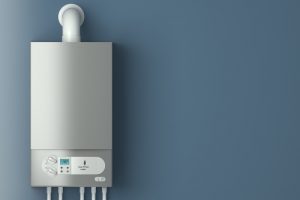 When winter rolls around, you expect your boiler to keep you and your family warm and toasty all season long. But sometimes, an unexpected problem can pop-up, causing all sorts of trouble for your comfort and your wallet.
When winter rolls around, you expect your boiler to keep you and your family warm and toasty all season long. But sometimes, an unexpected problem can pop-up, causing all sorts of trouble for your comfort and your wallet.
Ideally, you want to schedule your boiler repair in Colorado Springs, CO at the first sign of a problem, that way, you won’t have to worry about all sorts of crazy expenses. In fact, there are plenty of reasons to schedule your repairs at the first sign of trouble, and below, we have listed some of them for you. All you’ve got to do is keep reading to find out more!

 If you own a ductless system, then you know that it’s fully capable of keeping you and your family nice and cozy all year long…
If you own a ductless system, then you know that it’s fully capable of keeping you and your family nice and cozy all year long… Surely, it doesn’t really matter how big my furnace is, right?
Surely, it doesn’t really matter how big my furnace is, right? It can definitely be pretty confusing—just how exactly do you know what your furnace needs at the start of the heating season? Of course, you want to make sure that your furnace is fully equipped and prepared to keep you and your family warm and toasty all winter long, so what do you do?
It can definitely be pretty confusing—just how exactly do you know what your furnace needs at the start of the heating season? Of course, you want to make sure that your furnace is fully equipped and prepared to keep you and your family warm and toasty all winter long, so what do you do? Despite the saying, bigger is not always better, especially when it comes to the size of your furnace. We understand the assumption that the bigger the furnace is, the more output it will produce, and the warmer you will be. Although somewhat true, the size of your furnace, relative to your unique heating needs, can greatly impact its overall performance. The same principle applies if the furnace you’ve installed is too small. This is why it is important that your new home is properly sized to meet your home’s specific needs.
Despite the saying, bigger is not always better, especially when it comes to the size of your furnace. We understand the assumption that the bigger the furnace is, the more output it will produce, and the warmer you will be. Although somewhat true, the size of your furnace, relative to your unique heating needs, can greatly impact its overall performance. The same principle applies if the furnace you’ve installed is too small. This is why it is important that your new home is properly sized to meet your home’s specific needs. Winter isn’t going anywhere any time soon, which means that we will continue to use our furnaces quite a bit. Your furnace, like any other HVAC system in your home, is going to require repairs from time to time, and this is especially true during the end of the heating season. Even towards the end of the season, it is important to schedule your
Winter isn’t going anywhere any time soon, which means that we will continue to use our furnaces quite a bit. Your furnace, like any other HVAC system in your home, is going to require repairs from time to time, and this is especially true during the end of the heating season. Even towards the end of the season, it is important to schedule your  Winter isn’t letting up anytime soon. There is still plenty of time to ski, make snowmen, go snowshoeing, and use your furnace. Of course, with so much time left in the season, saving money on energy might be a bit of a concern. Fortunately, there is still time to improve your energy efficiency, simply by modifying the ways in which you heat your home.
Winter isn’t letting up anytime soon. There is still plenty of time to ski, make snowmen, go snowshoeing, and use your furnace. Of course, with so much time left in the season, saving money on energy might be a bit of a concern. Fortunately, there is still time to improve your energy efficiency, simply by modifying the ways in which you heat your home. Homeowners are always looking for ways to cut back on spending and save money. So today, we’ve decided to let you in on a little secret: savings start within the home. That’s right! One way to cut back on spending is to invest in maintaining the things you already own.
Homeowners are always looking for ways to cut back on spending and save money. So today, we’ve decided to let you in on a little secret: savings start within the home. That’s right! One way to cut back on spending is to invest in maintaining the things you already own. A faulty boiler could spell some serious trouble for homeowners here in Colorado. Winter is certainly not the time to jeopardize your indoor comfort, so it is important to invest in the services necessary to keep you warm and cozy all season long. Replacing your outdated boiler is one way to ensure your comfort without sacrificing your budget. Sure, purchasing a new boiler can seem a little pricy up front, however, the long term savings are definitely worth your while.
A faulty boiler could spell some serious trouble for homeowners here in Colorado. Winter is certainly not the time to jeopardize your indoor comfort, so it is important to invest in the services necessary to keep you warm and cozy all season long. Replacing your outdated boiler is one way to ensure your comfort without sacrificing your budget. Sure, purchasing a new boiler can seem a little pricy up front, however, the long term savings are definitely worth your while.